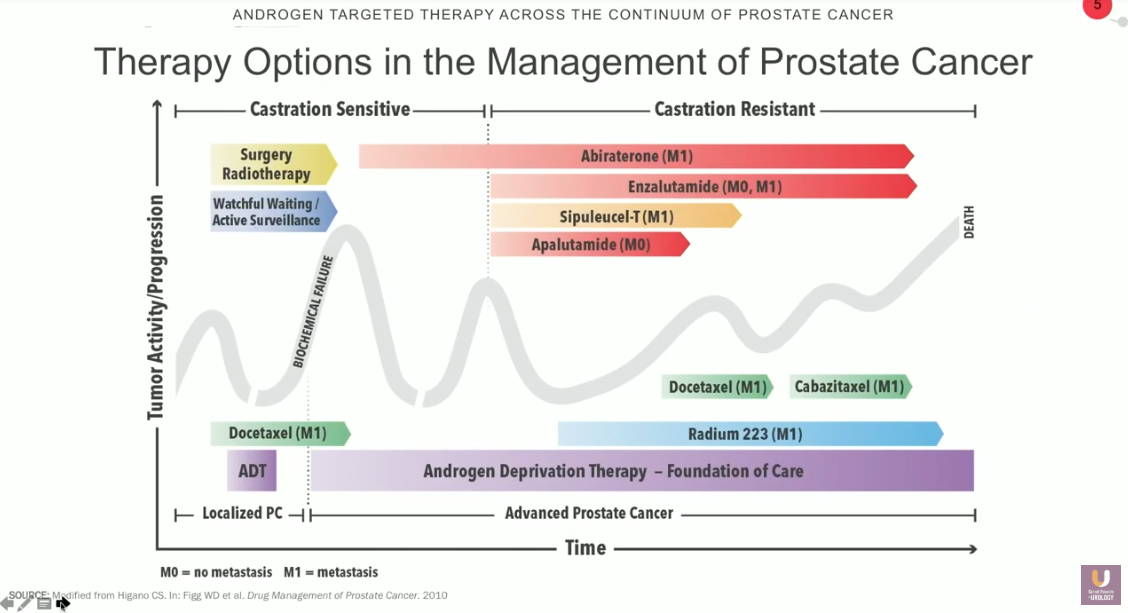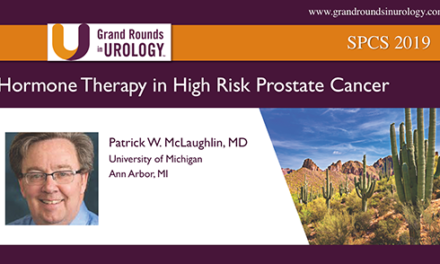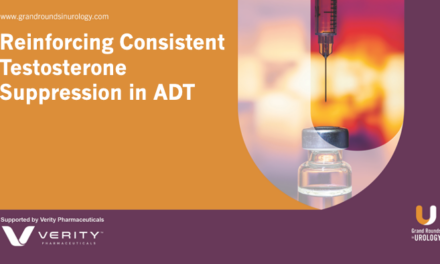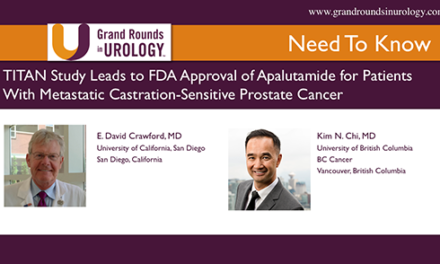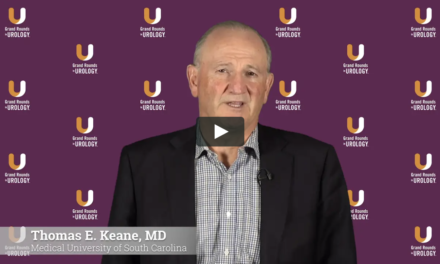E. David Crawford, MD, presented “Androgen Targeted Therapy Across the Continuum of Prostate Cancer” during the 24th Annual Southwest Prostate Cancer Symposium on April 11, 2019 in Scottsdale, Arizona.
How to cite: Crawford, E. David “Androgen Targeted Therapy Across the Continuum of Prostate Cancer” April 11, 2019. Accessed May 2025. https://grandroundsinurology.com/androgen-targeted-therapy-across-the-continuum-of-prostate-cancer/
Androgen Targeted Therapy Across the Continuum of Prostate Cancer – Summary:
E. David Crawford, MD, explains the role of testosterone, the androgen receptor (AR), and AR signaling pathways in prostate cancer. He discusses various available androgen deprivation therapies, including third generation androgen pathway inhibitors, and notes the importance of tailoring therapy to individual patients.
Abstract:
Activation of the androgen receptor (AR) signaling pathway is critical for prostate cancer (PCa) tumor growth and disease progression. The primary ligand needed for activating the AR is testosterone. Physicians are able to decrease tumor cell proliferation by lowering patients’ testosterone levels. Therefore, it has become the standard of care to reduce testosterone to castrate levels in patients with advanced PCa.
Currently, organizations like the FDA define a castrate level of testosterone as being under 50 ng/dL. However, newer assays are sensitive enough to measure levels below 50 ng/dL, while previous tests could not. Studies suggest that patients benefit from having less than 20 ng/dL, and that lowering the target to this level is desirable.
Overall, it is necessary to maintain consistent low levels of testosterone with ADT through a patient’s entire course of care. There are many therapy options for hormone suppression in the management of PCa.
Bilateral orchiectomy was previously the gold standard for PCa care. But its side effects, which include increasing circulating levels of follicle stimulating hormone, can be dangerous for cardiovascular health. Luteinising hormone-releasing hormone (LHRH) agonists and antagonists may address some side effects of estrogens and bilateral orchiectomy. It is important to note that patients may experience initial testosterone surges, as well as microsurges over time, while on LHRH therapies. Third generation androgen pathway inhibitors such as abiraterone, enzalutamide, and apalutamide also have approval in several different stages of PCa. These produce nearly complete inhibition of AR activation.
ADT is foundational care for advanced PCa, but physicians must personalize treatment approaches based on individual patient factors. Monitoring for PSA and testosterone levels, comorbidities, adverse events, and therapy compliance is essential during ADT. Overall, the goal of ADT should be to prolong life, prevent pain and complications, and preserve quality of life.
About the Southwest Prostate Cancer Symposium
The Southwest Prostate Cancer Symposium (SPCS) is a multi-day conference that seeks to educate urologists, radiation oncologists, medical oncologists, and other healthcare professionals involved in the treatment of prostate cancer. The topics focus on current technical aspects of diagnosis and treatment of localized and advanced disease, particularly regarding imaging, technology, and training in the related devices. Dr. Crawford presented this lecture during the 24th SPCS in 2019. In 2020, the 25th SPCS will also offer training sessions involving imaging, scanning, and prostate cancer treatment related devices on site. Please visit this page in order to register for future SPCS meetings.
ABOUT THE AUTHOR
Researcher-physician E. David Crawford, MD, Jack A. Vickers Director of Prostate Research and Professor of Urology at the University of California, San Diego, has devoted his career in medicine to educating the public about men's health issues and finding effective techniques and procedures to address prostate cancer, the most common malignancy affecting men in the United States.

